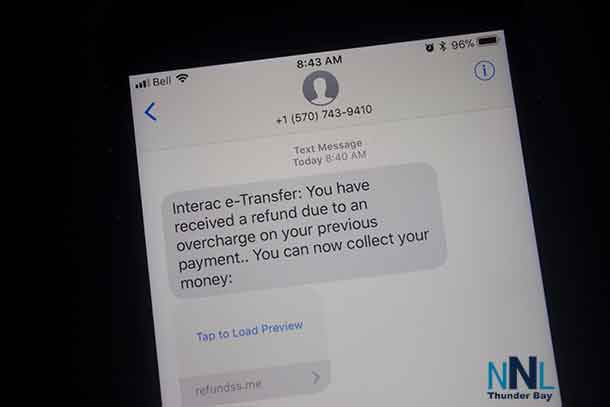WINNIPEG – The Winnipeg Police Service reminds the public to be conscious of potential scams and frauds as tax time approaches.
Some common scams and frauds include:
- Telemarketing Scams
- Online Scams
- Email and Text Message Scams
- Identity Theft
- Business Scams
- Mail Scams
- Door-to-door Scams
These methods are utilized to attempt to obtain money, identity information, credit card or account information, or submit the recipient to computer viruses that will obtain that information unknowingly.
More information on these types are scams can be found at Little Black Book of Scams
These fraud methods can take many forms. Be cautious and alert to any of these situations:
- Unexpected phone calls/callers. Make reasonable attempts to confirm who you are talking to. If the person is evasive about providing that information, it is an indication the call may be fraudulent in nature.
- Banks and financial institutions asking you to transfer money to external accounts via phone.
- Communications advising you have won money and to provide financial information to receive it.
- Calls from federal agencies asking you for money, requesting financial information or advising you are subject to a warrant or under arrest (common agencies include Canada Revenue Agency and Immigration, Refugees and Citizenship Canada)
- Companies offering refunds for services that you never purchased from them.
- Phone calls from unknown area codes (Do not assume phone numbers that are displayed on your phone are accurate).
- Personnel coming to your door unexpectedly. Ask for photo identification and do not let them enter your home if you suspect they are not legitimate. Call the company and ask if they have personnel in the area.
- Unexpected text or email alerts. Contact the company via phone and speak with a representative to confirm the information.
In all of these cases do not provide personal information if you feel uncomfortable and take the following steps:
- Do not engage in conversation with the caller
- Hang up immediately and make note of the date and time of the call, email, text etc and any contact information you were provided by them
- Do not provide your personal information to anyone (social insurance number, PIN number, credit card number, bank account information, or passport number)
- Do not reply to any email or texts
- Family members or friends should have discussions with older loved ones to ensure they are aware of these occurrences and not being targeted or victimized by these incidents.
If you feel you have been a victim of a fraud, scam, or deceptive telemarketing report the incident to any of the following:
- Canadian Anti-Fraud Center at 1-888-495-8501 Monday to Friday between 9:00 a.m. and 4:45 p.m. eastern time
- Contact the Winnipeg Police Service at the non-emergency number of (204) 986-6222 or Crimestoppers at (204) 786-8477.
For further information you can go to the following web link –Protect Yourself Against Fraud.







